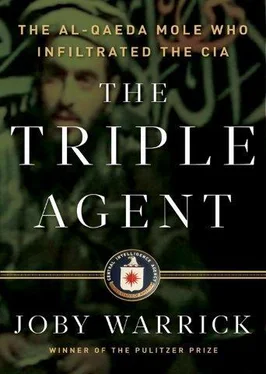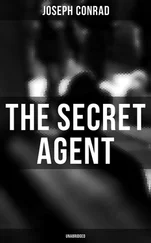The first reports had arrived at Panetta’s Monterey, California, home just before 5:00 A.M., with a rap on the director’s bedroom door by a member of his security detail. One of his aides urgently needed to speak with him on the secure line, Panetta was told.
“I’ve got terrible news,” the woman began. “We’ve lost seven of our officers in Khost.”
“What the hell happened?” Panetta shouted, instantly awake. He heard the words Jordanian informant and suicide bomber and the outlines of the disaster crystallized in his mind. The double agent. The long-awaited meeting. The chance to get Ayman al-Zawahiri. It had all been a trick.
Panetta pressed for details, but there were few at that hour. He hung up the phone and sat, hoping that it was somehow a bad dream.
As the chief of staff for the Clinton White House he had stood by the president in 1993, when news broke of the bombing of the Alfred P. Murrah Federal Building in Oklahoma City, an attack by American right-wing extremists that killed 168 people. But never had men and women fallen under his direct command.
This is truly war , he thought.
With Bash on the line he began to make phone calls, thinking that the bad news should come first from him. He called Dennis Blair, the director of national intelligence, and Robert M. Gates, the defense secretary. He tapped in the number for Vice President Joe Biden.
Then he called the president.
Barack Obama was on Christmas vacation in Hawaii, but after a moment the CIA director was patched through. We lost seven officers in Khost , Panetta began.
“This guy that we thought was going to take us to Zawahiri turned out to be a double agent and blew himself up,” he told the president.
The two talked for a few minutes while Panetta summarized the scant facts he had. Obama listened quietly at first, then stopped Panetta repeatedly to press for details. I want to understand what happened , he said.
The two talked about what would come next. Family notifications. Services. The White House should be part of it , Obama said, thinking out loud. The families should know that we’re with them .
Please keep me posted, Leon , the president said, finally. If there’s anything at all that I can do …
Back at Langley, Bash had invited Hayden to stay, so he did. Some of the names of the victims were starting to trickle in, and one of them pierced Hayden to his core.
Elizabeth Hanson.
He could still picture her young face from the times she had presented updates on al-Qaeda at senior staff meetings. He remembered her voice from late-night calls from the Counterterrorism Center, when the agency was hot on the trail of some senior commander in Pakistan. She was smart, confident, attractive, a walking recruitment poster for the agency. She exuded the kind of enthusiasm and competence that had made Hayden proud when he served as director.
Hayden sat for a long time in the director’s office with Bash and Sulick, talking about the events, the people, wondering what had gone wrong. Finally he said good-bye to the others and let himself out. He walked past the guard station and through the marble entranceway, with its famous engraving of the CIA seal on the floor. He passed the CIA’s fallen officer memorial, where dozens of granite stars honor slain intelligence operatives, including many whose names will forever remain secret.
Outside, it was overcast and freezing. Hayden hurried to his vehicle and sat for several minutes in the parking lot. He thought about Hanson and the others and the many families who at this hour did not yet know what lay ahead for them.
Alone in his car in the bitter cold, Michael Hayden wept.
Even before the extent of the losses was known, top CIA officials inaugurated a plan that would guide the agency’s response over the coming days. The first immediate step was to seal off Khost entirely, locking down the base itself and cutting communications to the outside world. A few cell phone calls made it to the United States before the access was shut. One of them was from a Special Forces officer who had witnessed the bombing’s aftermath and called a CIA friend with the news.
“Your base just got blown up,” he said.
The agency imposed a news blackout in an effort to keep details of the attack out of the public spotlight until the senior managers were clear on exactly what had happened and had started the process of notifying the families of the dead and wounded. Within hours, Internet news sites were buzzing about a major explosion at a secret CIA base, but the official response from Langley was silence. At headquarters and in the agency’s Amman station, teams were appointed to the grim task of locating wives and parents so they could be told in person.
The CIA had no one reasonably close to Tuscany on December 30, so it fell to the Amman station to deliver the news by phone to Racheal LaBonte. The station chief knew that the LaBonte family was in Italy, expecting Darren to show up at any time. In reality, his wife already sensed that something had gone badly wrong in Afghanistan.
Late in the afternoon she began receiving urgent text messages from Ali bin Zeid’s wife, Fida. The Jordanian woman had been watching news reports about an attack of some kind in Afghanistan, and she was worried. Bin Zeid had not phoned when he was supposed to, and now she was having trouble getting through to him. Had Racheal heard from Darren?
Racheal LaBonte figured it was just a problem with phone lines, but to ease both their minds, she punched in the number of the CIA duty officer back in Amman. The voice on the other end sounded a little nervous but was reassuring. There was no news from Khost, good or bad, Racheal was told.
A few hours later, as she put the couple’s daughter, Raina, to bed, the fear started to prick her like a thousand little knives. There was a knock on the door. It was the landlord, saying that someone from the U.S. government was trying to reach the family. A phone rang. It was the station chief from Amman.
“Are you sitting down? Is your father-in-law with you?” he was asking.
“Say what you’re going to say. I want to hear in person,” Racheal demanded.
“I don’t know how to tell you this. Darren was killed in a suicide bombing,” he began.
Racheal fell to her knees, the phone still pressed against her ear. Darren’s parents were hovering over her, asking questions. What happened?
“Darren didn’t do anything wrong,” the station chief was saying. “He was a hero.” Then: “Racheal, are you still there?”
Racheal was lost in a fog so deep it felt as though the events were happening to someone else. “You’ll have to tell Dave,” she said softly, and handed off the phone. She was dimly aware of her father-in-law, David LaBonte, shouting into the phone in a voice tinged with exasperation and pain.
“What do you mean?” he was shouting. “What are you saying?”
She looked up to see her mother-in-law, Camille, frightened and confused, fearing the worst but not yet knowing. Racheal took her hand to tell her gently that her son would not be coming home.
At the same hour small teams of CIA officers were boarding planes and cars heading to small towns in Virginia, Pennsylvania, and Illinois. Two of Elizabeth Hanson’s close friends trekked through a snowstorm to knock on the door of her mother’s house in suburban Chicago. Others sat with Janet Brown, whose husband, Harold, had been only a few weeks from completing his Khost assignment and was due to travel home soon; and with Molly Roberson, who was seven months pregnant with a baby girl that she and Scott Roberson had decided to call Piper. A fourth team tracked down Jennifer Matthews’s husband and children at a ski resort. Gary Anderson sat with his in-laws, Bill and Lois Matthews, in a hotel in Hershey, Pennsylvania, to learn the details of how his wife had died.
Читать дальше












